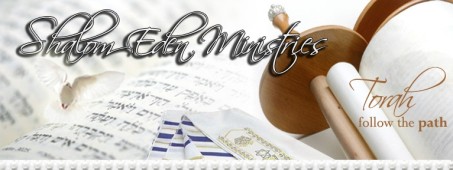 |
SERIES J --- THE WARRIOR KING |
BIBLE STUDY LESSON 19
DAVID REBUKED HOW THE KING WAS PUNISHED ‘The Lord says, ‘I made you king over Israel and saved you from Saul’s power. I gave you his household and his wives and put the entire nation in your power. If that was not enough, I would have given you much more power and riches. So why have you turned against My commandment by doing what you have done? Why have you murdered Uriah the Hittite and stolen his wife? Because you have gone against Me, I will cause your family to go against you. As you have taken another man’s wife in secret, I will cause another man to take yours publicly. Your sins have been in secret, but your punishment shall be open to all.’ ‘I have sinned against the Lord,’ David cried out. ‘Yes, but death will not be your punishment,’ Nathan answered. ‘However, you have given the Lord’s enemies cause to ridicule Him. For that, your baby son will die.’ Nathan returned home and Bathsheba’s child became very sick. David cried out to the Lord for Him to spare the little boy. He began a long fast and lay on the bare ground all night long. The king’s counsellors tried to encourage him to get up, but he refused. He also refused to eat any food. This went on for seven days and then the boy died. David’s attendants were afraid to tell him about the boy’s death. ‘He wouldn’t listen to a word we said while the child was alive,’ they said. ‘He may even do some drastic harm to himself if he learns that the child is dead.’ David however, saw the men whispering and he suspected what had happened, ‘is he dead?’ he asked them. ‘Yes, he is dead,’ they answered. Then David arose from the ground, washed and put on scented oil, changed his clothes and went to the tabernacle to worship. When he returned to the palace, he ordered food to be brought and he sat down and ate it. The attendants were surprised by all this. ‘We don’t understand it,’ they said. ‘While the child was alive, you fasted and wept. But when the child died, you got up and ate!’ David answered, ‘I fasted and wept while the child was alive because I was pleading for the Lord to spare him. But I cannot bring him back from the dead now, no matter how much I fast and weep. I can go to him, but he can never return to me.’ David visited Bathsheba and comforted her. Later David and Bathsheba had another son and they named him Solomon. The Lord loved this child and sent a message through Nathan to call him by another name, Jedidiah, which meant: ‘The Lord’s Beloved.’ While all this was going on, Joab and his army had almost completed the siege of Rabbah, capital city of the Ammonites. Joab sent a message to David, ‘we have almost completed the conquest of Rabbah, for we have cut off its water supply. Now you may bring more troops and capture the city yourself so that you will receive the honour, instead of me, of having it named for you.’ David brought troops to Rabbah and completed its conquest. He took the king’s crown of gold and jewels, which weighed ninety-two pounds and placed it on his own head. He also took plunder from the city in great quantities. He made the people his shaves, putting them to work with saws, picks and axes and forcing them to work in the brick kilns. This was what he did to all the cities of the Ammonites. After that, David returned to Jerusalem with his army.” COMMENTARY PARABLES OF THE OLD TESTAMENT TEST YOURSELF 1.) What prophet was sent by God to rebuked David? 2.) What was David’s punishment for his sin with Bathsheba? 3.) What was David’s reaction at the news of his son’s death? 4.) What did David and Bathsheba name their second-born? 5.) What does “Jedidiah” mean? 6.) What did David do to the inhabitants of Rabbah? 7.) What is another name for a “word pictures”? 8.) Who was a famous user of these “word pictures?” 9.) What group of people frequently used these “word pictures” to convey a difficult or complicated message? |